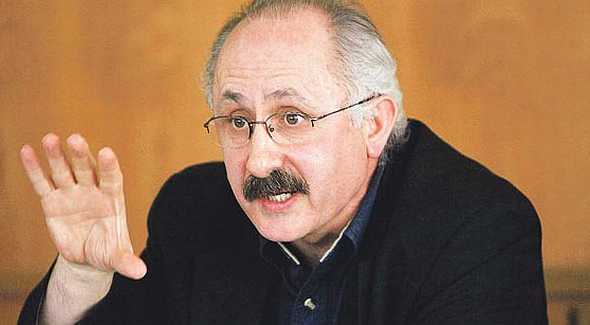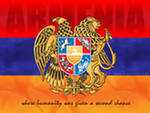Long-standing occupation amounts to annexation
Since its invasion of Cyprus in 1974, Turkey has claimed that it was acting as a protector and guarantor of the island’s security. But a closer examination of its actions on Cyprus indicates motivations of a very different character. Turkey’s invasion resulted in hundreds of thousands of Greek Cypriot refugees, who have been unable to return to their homes for almost 40 years. The international community has repeatedly condemned the illegal military occupation of Cyprus by Turkish troops. The United Nations Security Council has passed 75 resolutions calling for Turkey to allow Greek Cypriots to return to their homes and to withdraw its troops from Cyprus. Yet Turkey continues its occupation.
More than 40,000 heavily armed Turkish soldiers are occupying the northern part of the country, with one Turkish soldier for every two Turkish-Cypriots. The presence of this overwhelming force cannot be justified by the claims that they are needed to prevent any renewal of violence. In fact, since the 2003 opening of the border between the two communities, more than 17 million intercommunal visits have occurred without conflict.
The result of this occupation by foreign troops is that many Cypriot neighborhoods in the occupied areas remain vacant or in a state of disrepair. One of the most tragic examples is the Varosha region of Famagusta. Once an important commercial and tourism center for the island, Varosha was fenced off following the invasion, and access has been prohibited for all except Turkish military forces. Over the years, this area has become a virtual ghost town.
The desolation of Cypriot properties and cultural sites is not restricted to Varosha but is a reality in all the areas under Turkish military occupation. In fact, an estimated 520 Greek Orthodox churches and chapels, and 17 monasteries in the occupied areas have been pillaged, vandalized or destroyed. Often these religious sites have been converted into stables, bars, nightclubs, casinos or hotels, leaving more than 15,000 religious artifacts unaccounted for. This widespread destruction of Cypriot historic, religious and cultural identity certainly does not seem like the behavior of a “protective guardian.”
Turkey also continues to interfere in the domestic affairs of Cyprus, especially the negotiations on reunification. The goal of these talks is a Cypriot-developed, mutually agreeable settlement based on a bizonal, bicommunal federation with political equality, including a single sovereignty, single citizenship and single international presence. But instead of allowing the representatives from the Turkish-Cypriot community to engage freely in the talks, the Turkish government has imposed its own criteria, which has made an agreement all but impossible.
Turkey also has tried to limit Cyprus‘ sovereign rights to develop its energy resources. Despite the island’s critical energy needs, Turkey declared last year that it had “nullified” the exploration agreement between Cyprus and Israel even though it has no right to do so. Turkey escalated the conflict by sending its own ships to the region and even threatened military action if Cyprus continued in its project with Israel. Although from the beginning, Republic of Cyprus President Demetris Christofias guaranteed that any energy resources discovered would be used for the benefit of all Cypriots, Turkish officials claimed their actions were to protect the rights of the Turkish-Cypriots.
Reports by the Turkish-Cypriot media indicate that the Turkish government continues to promote illegal immigration by Turks to the northern occupied areas of Cyprus with the goal of changing the demographic composition of the island. According to people administering the occupied area, there are an estimated 160,000 settlers from Turkey, many of whom occupy the homes of the evicted Greek-Cypriots. However, reports in the Turkish-Cypriot press from Turkish-Cypriots who live among the Turkish settlers put this number between 500,000 and 800,000. A recent “census” in the north indicated that the total population in the north had increased to nearly 300,000 people. Just 88,900 of them were native Turkish-Cypriots, who are outnumbered by illegal Turkish immigrants by a ratio of almost 2-1.
Ankara’s support for these illegal immigrants is not welcomed by the native Turkish-Cypriot community. In fact, Stella Altziman, who resides in that region of Cyprus, wrote in 2010: “Due to constant migration from Turkey, [the northern occupied area] is like a Turkish province” and the native Turkish-Cypriots have become a minority in their own land. Last year, many Turkish-Cypriots protested Turkey’s policies toward Cyprus, with some carrying banners that read, “Ankara, get your hands off our shores.” Yet Turkey continues to flood its areas of occupation with illegal Turkish immigrants. In his visit to Cyprus last year, Turkish Prime Minister Recep Tayyip Erdogan mocked the Turkish-Cypriots, stating, “If you don’t want us to send people, you need to have more babies.”
By its occupation, Turkey is “guaranteeing” nothing but a creeping annexation. It is time for Turkey to withdraw its military troops, end all support for illegal immigration to Cyprus and let the true inhabitants of the island determine their own future. Only then will the long-suffering Cypriot people finally enjoy the peace and security they have been trying so desperately to achieve for decades.
Rep. Ileana Ros-Lehtinen, Florida Republican, is chairman of the House Foreign Affairs Committee.
via ROS-LEHTINEN: Time for Turkey to leave Cyprus in peace – Washington Times.





